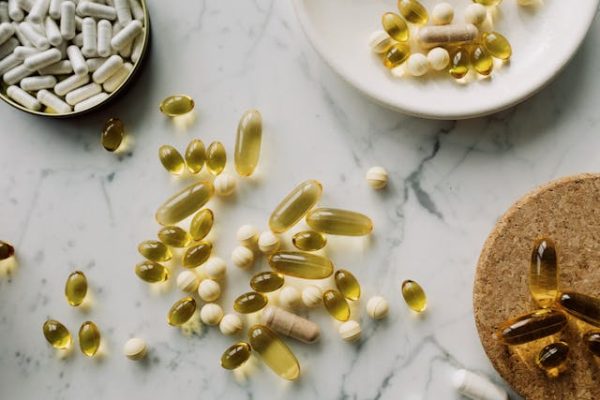Nerve pain can affect daily comfort and focus, often causing tingling, numbness, or burning sensations that interfere with normal activities. Many people look for natural ways to manage these symptoms without relying only on medication. Herbal supplements may provide gentle support by helping the body ease discomfort and protect nerve health.
This article explores how certain herbs may reduce inflammation, support nerve repair, and calm irritated nerves. It also looks at their possible role in maintaining overall nervous system balance. Each section provides clear, factual insight into how these natural options may contribute to long-term nerve comfort and function.
Reduce inflammation to alleviate nerve pain
Inflammation often worsens nerve pain by increasing pressure on sensitive tissues. Herbal supplements that calm inflammation may help reduce discomfort and improve daily function. Some of the best supplements for neuropathy include alpha-lipoic acid and acetyl L-carnitine, which support nerve health and help ease irritation linked to oxidative stress.
Turmeric, rich in curcumin, may also help reduce inflammation throughout the body. Its natural compounds can protect nerve cells from damage caused by free radicals. Similarly, chamomile and nettle contain anti-inflammatory agents that may relieve mild nerve pain when used regularly.
In addition, herbs such as St. John’s wort and evening primrose oil may help balance nerve signals and reduce pain sensations. These natural options provide gentle support for those seeking alternatives to prescription treatments while maintaining a focus on reducing inflammation to manage nerve discomfort.
Promote nerve regeneration and repair
Certain herbs may help the body repair damaged nerves by supporting natural healing processes. Research suggests that compounds in herbs such as Lion’s Mane and Ginkgo can encourage nerve cell growth and improve communication between nerve cells. These effects may help restore function after injury or damage.
Some herbal supplements also reduce inflammation, which can slow nerve recovery. By calming inflamed tissues, herbs like turmeric and skullcap may create better conditions for nerve repair. This can make it easier for the body to rebuild healthy nerve fibers.
In addition, antioxidants in many herbs protect nerve cells from further harm. They help limit oxidative stress, which often contributes to nerve pain and degeneration. Therefore, using herbal supplements that support nerve health may aid recovery and improve comfort over time.
Provide antioxidant support to protect nerves
Antioxidants help guard nerve cells from damage caused by oxidative stress. This process happens when the body produces more harmful molecules, called free radicals, than it can neutralize. Over time, these molecules can harm nerve tissue and slow recovery.
Certain herbs and nutrients supply antioxidants that support nerve health. Curcumin from turmeric, for example, has anti-inflammatory and antioxidant effects that may reduce nerve irritation. Alpha-lipoic acid also helps recycle other antioxidants and supports normal nerve function.
A diet that includes herbs and foods rich in antioxidants can further support this process. Leafy greens, berries, and spices such as turmeric or ginger add natural compounds that protect nerve cells. Therefore, combining these foods with herbal supplements may help maintain nerve strength and comfort.
Calm nerve-related tingling and burning sensations
Herbal supplements may help calm nerve pain by supporting normal nerve function and lowering irritation in the body. People with neuropathy often describe sensations such as tingling, burning, or numbness in their hands or feet. Certain herbs appear to reduce these uncomfortable feelings by acting on inflammation and circulation.
Turmeric contains natural compounds that may reduce nerve discomfort. Its active ingredient, curcumin, supports a healthy response to inflammation, which can ease burning or prickling sensations. St. John’s wort may also support nerve health by promoting better communication between nerve cells.
Valerian root and ginger sometimes help relax tense muscles and improve comfort in affected areas. These herbs may not remove nerve pain completely, but they can make daily activities easier. However, people should discuss herbal use with a healthcare provider before starting any new supplement to confirm safety and proper dosage.
Support overall nervous system health
Herbal supplements can help the body maintain steady nerve function. Certain herbs and nutrients support the repair of nerve cells and help reduce inflammation that can affect signal transmission. This support helps the nervous system stay balanced and responsive.
B vitamins, magnesium, and omega-3 fatty acids often appear in nerve health formulas. These nutrients help produce energy in nerve cells and protect them from stress. Therefore, they may help reduce discomfort linked to nerve pain.
Herbs such as ashwagandha and curcumin may also help calm the nervous system. They can ease tension and support a steady mood, which benefits nerve communication.
A diet that includes these nutrients, along with herbal supplements, can help maintain healthy nerve function. As a result, the body may respond better to daily stress and maintain clear nerve signaling.
Conclusion
Herbal supplements may help reduce nerve pain by targeting inflammation, oxidative stress, and nerve damage. These effects can support nerve repair and improve comfort for some individuals.
Research suggests that herbs such as turmeric, St. John’s wort, and valerian may ease discomfort through anti-inflammatory and antioxidant actions. However, results can differ based on dosage, product quality, and individual health factors.
People often use herbal options alongside medical care, balanced nutrition, and physical activity. This combined approach can provide a safer and more consistent path toward better nerve health.
Anyone considering herbal supplements should consult a healthcare professional to confirm safety, avoid interactions, and choose suitable products.


